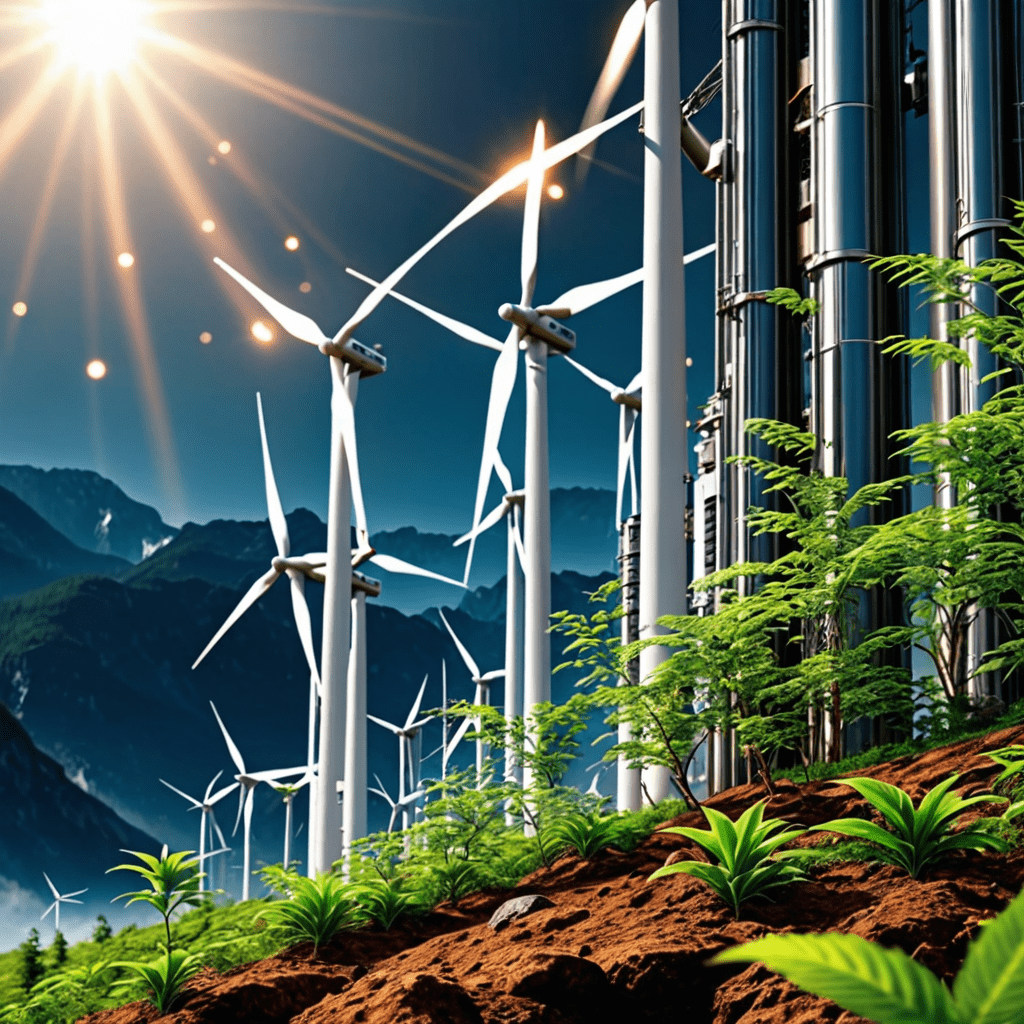
Nanotechnology in Sustainable Energy Production: Clean Power Sources
As the world shifts towards sustainable energy production, nanotechnology has emerged as a key player in revolutionizing clean power sources. This innovative field holds immense potential in enhancing energy efficiency and reducing environmental impact. Let’s explore how nanotechnology is paving the way for a greener and more sustainable future.
1. Harnessing Solar Energy with Nanotechnology
Nanotechnology has significantly improved the efficiency of solar panels by enhancing light absorption and electron transport. Nanostructured materials like quantum dots and nanowires are enabling the development of next-generation photovoltaic cells that can convert sunlight into electricity with unprecedented efficiency.
2. Enhancing Energy Storage with Nanomaterials
Nanotechnology plays a crucial role in improving energy storage solutions such as batteries and supercapacitors. By incorporating nanomaterials like graphene and carbon nanotubes, researchers are developing high-performance energy storage devices that offer increased capacity, faster charging times, and longer lifespan.
3. Clean Fuel Production through Nanocatalysts
Nanocatalysts are revolutionizing the production of clean fuels through processes like hydrogen fuel generation and CO2 conversion. Nanoparticles with tailored properties exhibit exceptional catalytic activity, enabling efficient and sustainable fuel synthesis without harmful emissions.
4. Nanotechnology for Energy-Efficient Buildings
Nanomaterials are being integrated into building designs to improve energy efficiency. Nanocoatings and insulating materials enhance thermal regulation, reduce energy consumption for heating and cooling, and create sustainable infrastructures that contribute to lower carbon footprints.
5. Advancements in Wind Energy through Nanotech
Nanotechnology is enhancing the performance and durability of wind turbines, leading to increased energy generation from wind power. Nano-enhanced materials are improving blade design, aerodynamics, and maintenance practices, making wind energy a more reliable and cost-effective clean power source.
6. Role of Nanotechnology in Hydrogen Economy
Nanotechnology is driving innovation in the hydrogen economy by facilitating efficient hydrogen production, storage, and utilization. Nanomaterial-based catalysts and membranes are improving the feasibility and scalability of hydrogen fuel cells, offering a clean and renewable energy alternative.
7. Future Prospects of Nanotechnology in Sustainable Energy
The integration of nanotechnology in sustainable energy production holds immense promise for the future. Continued research and development efforts are focused on harnessing the potential of nanomaterials and nanodevices to create cleaner, more efficient, and cost-effective energy solutions that will play a vital role in mitigating climate change and ensuring a sustainable energy future for generations to come.
FAQ: Nanotechnology in Clean Energy Production
What is Nanotechnology’s Role in Sustainable Energy Production?
Nanotechnology involves manipulating materials at the nanoscale level. In clean energy production, it can enhance the efficiency of solar cells, improve energy storage capacity, and enable the development of advanced catalysts for fuel cells.
How Can Nanotechnology Improve Solar Energy Harvesting?
By designing nanostructures, such as quantum dots or nanowires, nanotechnology can improve light absorption in solar cells. These nanomaterials increase the conversion efficiency of sunlight into electricity, making solar energy more viable.
What are Nanomaterials’ Benefits in Energy Storage?
Nanomaterials like graphene and carbon nanotubes can enhance the performance of batteries and supercapacitors. Their high surface area and conductivity allow for faster charging rates, longer battery life, and improved energy storage capacity.
How Does Nanotechnology Contribute to Clean Fuel Production?
Nanocatalysts based on materials like platinum nanoparticles can accelerate chemical reactions in fuel cells, enabling the production of clean electricity from hydrogen or other fuels. These nanomaterials make fuel cells more efficient and environmentally friendly.
What are the Environmental Benefits of Nanotechnology in Energy Production?
Nanotechnology plays a crucial role in reducing carbon emissions by enabling the use of renewable energy sources like


